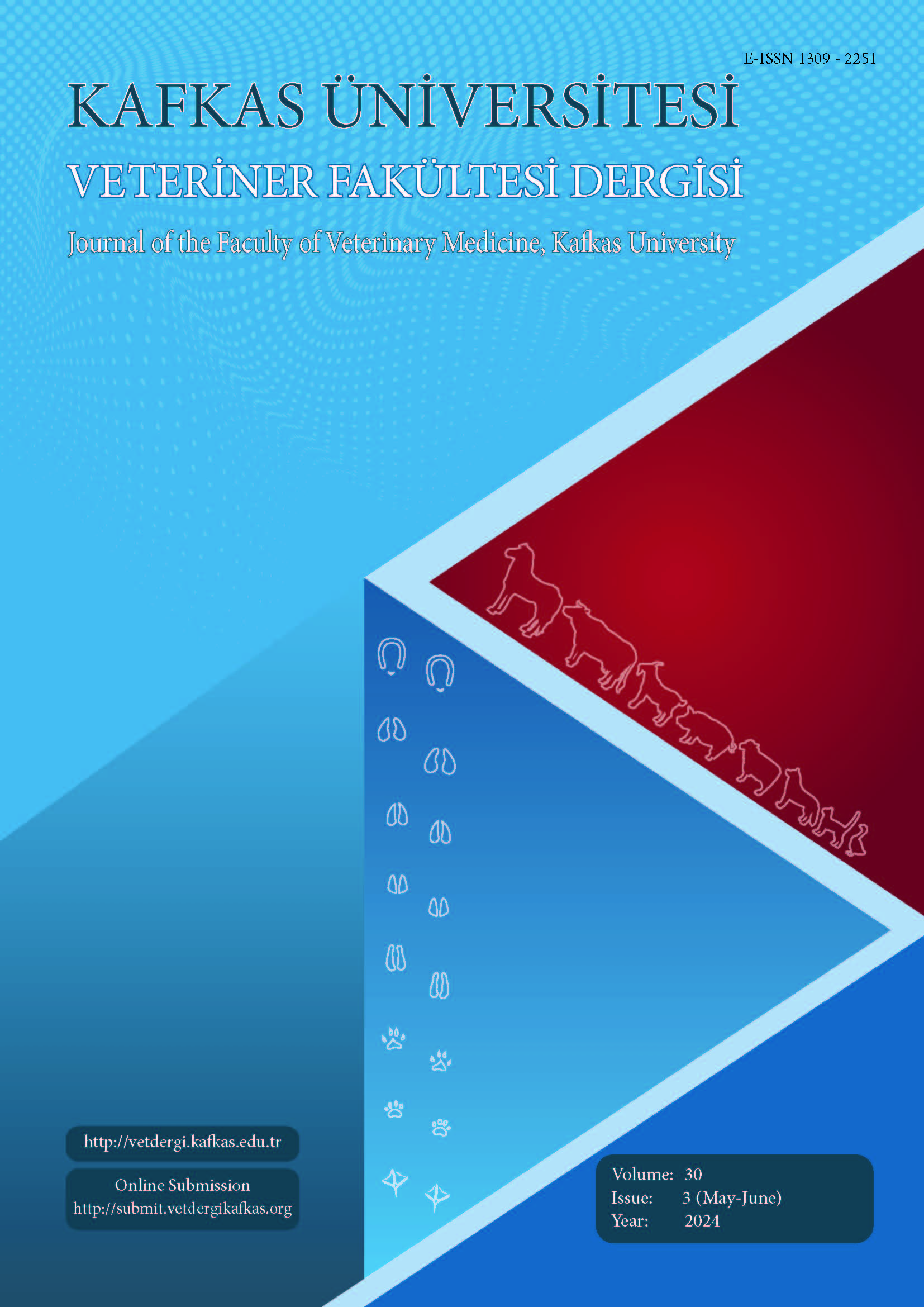Kafkas Üniversitesi Veteriner Fakültesi Dergisi
2024 , Vol 30 , Sayı 3
Effects of Dietary Supplementation with Clostridium butyricum on Rumen Fermentation, Rumen Microbiota and Feces in Beef Cattle
1Department of Ruminant Product Research and Development, Guangdong VTR Bio-Tech Co., Ltd., Zhuhai, 519060, CHINA2Animal Product Research and Development Department, Wellhope Foods Company Limited, Shenyang, 110164, CHI
3Agricultural Comprehensive Administrative Law Enforcement, Jinpu New District. Dalian, 116000, CHINA
4Department of Animal Science, Northwest A&F University. Yangling 712100, CHINA DOI : 10.9775/kvfd.2023.31114 This study investigated how Clostridium butyricum affected rumen fermentation and the microbial communities of rumen and feces in beef cattle. Twenty beef cattle were divided into two groups: the control group (CK) and the C. butyricum group (CB, fed 2.5 x 108 CFU/kg of dry matter intake per day). The results showed that C. butyricum increased rumen pH, ammonia-N concentration, and microbial crude protein (MCP) concentration (P<0.05). Ruminal propionate and butyrate concentration increased, while the ruminal acetate to propionate ratio decreased (P <0.05). For rumen microbiota, observed species, Chao 1, and ACE indices were higher (P<0.05) with supplemented C. butyricum. At the phyla level, the C. butyricum enhanced the proportion of Firmicutes and decreased Bacteroidota (P<0.01). Christensenellaceae R-7 group, Methanobrevibacter, Oscillospiraceae NK4A214 group, Desulfovibrio, Streptococcus, and C. butyricum were increased (P<0.05) at the genus and species levels in the CB group. The proportion of Prevotella, Christensenellaceae R-7 group, Blautia, and Megasphaera elsdenii increased, while Escherichia coli decreased (P<0.05) in feces. E. coli and Salmonella populations were significantly reduced (P<0.01). These results indicated that diets supplemented with C. butyricum could improve rumen fermentation by increasing the diversity and altering the microbial community structure of the rumen. Additionally, the supplemented C. butyricum changed the fecal microbiota and decreased the harmful bacteria population in beef cattle. Anahtar Kelimeler : Clostridium butyricum, Fecal E. coli, Fecal microbiota, Rumen fermentation, Rumen microbiota, Microbial population











